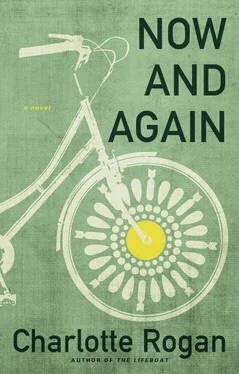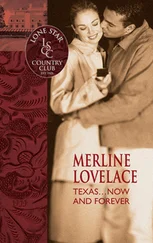When Maggie stopped talking, the pastor said, “All I can tell you is that this might be God’s way of winning George and Tomás and their fellow inmates over. Prison can be a powerful force in getting us to reassess our lives. Has George accepted the Word of God? Has Tomás acknowledged the Living Christ? That is where your efforts should be concentrated. What is freedom of the body without the surpassing freedom of the soul? What an opportunity for you to do some good!”
“But how would we feel if we were in their position?” asked Maggie. “How would we feel if we were wrongly convicted and no one would listen to us?”
“That would feel terrible,” said the pastor. He liked to agree with his opponent whenever possible. They expected him to argue, so he peppered his speech with phrases like, “you’re right there!” or “one hundred percent correctamente!” Then he’d pause for a moment to reinforce the bond of agreement before executing a quick pivot. He reached out to touch Maggie’s arm as he said, “Modern Americans worry far too much about feelings. Besides, what would feel worse, a few years in prison or an eternity in hell?”
“I don’t think that’s the choice,” said Maggie.
Lyle had been sitting quietly, but now he said, “I’m sorry, Pastor, but you can see she’s not herself.”
“This is who I am, Lyle. For years we’ve only seen one side of each other, but there’s more to both of us — at least I hope there is.”
When Price pointed out the opportunity for showing compassion and brotherly love, Maggie cried out, “But I don’t love them! To tell you the truth, most of them give me the creeps. But that’s not their fault. It’s the prison. It puts people in a position where all they can do is take, so why should I feel good about giving? I shouldn’t. I should feel terrible about it, and I do.”
“Then perhaps you are not ready for this particular challenge, my child.” The pastor was remembering his own sense of superiority, his own feelings of — well, “repugnance” was a strong word — but he was quietly glad that he was not alone in his humanity. He was quietly glad of this reminder that he too needed to be vigilant about humility and service. Perhaps God had sent Maggie precisely to remind him of that very thing. “Perhaps you have taken on too big a task,” he said. “There are many other charitable venues. Tiffany is a dynamo when it comes to organizing the efforts of the parish. Ask her about her Mothers of Mercy initiatives — MoMs for short. Perhaps you’d be better off choosing one of those.”
“It’s not about me being better off, and why should I get to pick and choose?” cried Maggie. “This thing chose me, and I should at least see it through.”
Tiffany came into the room with a plate of broken cookies. Even though he knew they had been on the floor, Price took one and complimented his wife on the delicate flavor. “Do I detect a hint of cinnamon?” he asked.
Now that the niceties were over, the pastor let his eyes burn into Maggie’s until she looked away. They had come to the point of the encounter, and he wanted her to know it. The husband wasn’t capable of understanding, but when Maggie looked back at him, Price could see she was. “I’m sure there’s an easy solution,” he said. One of his techniques was to lull the parishioner with calming adjectives before delivering his toughest judgment. He said “easy” a second time, and then he said “comfortable” and “humble” before telling her, “You’ll find that the right thing is usually the one you want to do anyway.” Pastoral counseling was like the martial arts, where a combatant used his opponent’s own weight and momentum to defeat him or her. “It is my experience that a person’s biggest enemy is herself and that seemingly insurmountable obstacles and complications are often self-imposed.”
Price could see he was making progress. Lyle’s mouth had gone from a thin, grim line to slack-lipped admiration, and Maggie’s eyes had gone from glassy and wild to flat and blank. He would eventually get them both to smile, but he wasn’t ready for that yet. He had to finish applying the lesson first. “We are the ones who clamp the manacles around our own wrists,” he said, letting a note of hollow warning into his voice. “And we are the only ones who can take them off.” Now his voice became lighter, optimistic. “That is true of George and Tomás, and it is true of you as well. George and Tomás got entangled with the law because of their own actions. And they are only wrongly convicted (here, the pastor made a set of air quotes) because you have decided that is the case. It is completely within your power to decide otherwise.”
“Maggie doesn’t want to be unfair,” Lyle began, but the pastor interrupted him.
“How is she being unfair? Is she the one who put those men in prison? Is she now the judge and jury too? It is my view that the problem is not with the American system of jurisprudence; the problem is with Maggie herself. And that is actually very good news, because it is a much easier problem to solve.”
Lyle shuffled his feet and brushed the cookie crumbs from his trousers. Then he gave a slight nod.
“The problem,” said the pastor, “is one of grandiosity. Maggie thinks she can know more about these things than highly qualified professionals. That’s just wrongheaded, and nothing good will come of it.”
Now it was time to get Maggie to admit her role in things. Now it was time to draw closer to her and to use what he thought of as his boudoir voice, but the version with an implied threat. Finally, a tear rolled down Maggie’s cheek and she admitted, “Maybe you’re right.”
“It’s my business to be right,” said the pastor, slipping into the mode he called release-and-resolution. “But I’ve been at this a long time. I want you to feel the rightness too. Most of all, I want you to be right with God.”
Now the pastor turned to Lyle. “I have a little advice for you too, Lyle. It’s what I tell my midlife crisis couples. We talk a lot about negotiation. We talk about giving your loved one permission to do something a little crazy. Maggie agrees in advance that it will be just one slightly crazy thing, then back to business. And you agree that there will be no questions asked. Do you think you two could come to an arrangement like that?” Price wondered if he and Tiffany would ever come to the point where they needed to allow each other extra leeway. He hoped not, but he had seen enough couples to know that life was predictably unpredictable.
It was nearly eleven o’clock when he told the joke he liked to close that sort of session with. He had a little store of them that proved he didn’t take himself too seriously. “How many New Incarnation pastors does it take to screw in a lightbulb?” he asked.
Maggie stared at him, but Lyle was smiling already, even before the punch line.
“Three!” declared the pastor in a hearty voice. “One to hold the ladder, one to screw in the bulb, and one to ask you if you’ve seen the light.”
The surge meant going forward — who ever heard of surging back? So I wasn’t going to spend a lot of time crying over mistakes we couldn’t do a goddamned thing about.
— Lieutenant Colonel Gordon Falwell
Now we had the official incident report and a couple hundred newspaper stories called “Heroic Rescue.” No one was asking what those men were doing there in the first place. Who was going to go looking for an email they didn’t even know exists?
— Captain Penn Sinclair
I sent Danny off to war, but I was never quite certain it was Danny who came home.
Читать дальше












